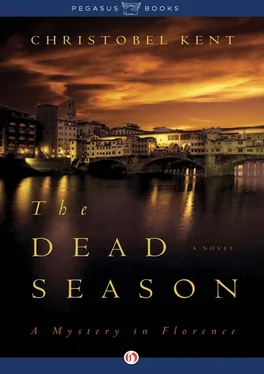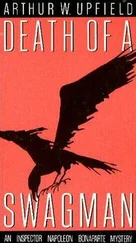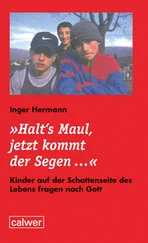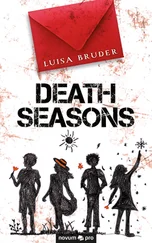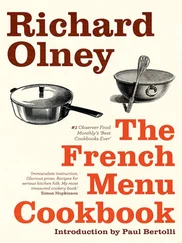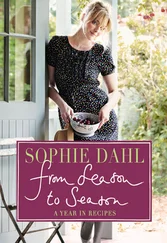Christobel Kent - Dead Season
Здесь есть возможность читать онлайн «Christobel Kent - Dead Season» весь текст электронной книги совершенно бесплатно (целиком полную версию без сокращений). В некоторых случаях можно слушать аудио, скачать через торрент в формате fb2 и присутствует краткое содержание. Год выпуска: 2012, Издательство: Corvus, Жанр: Криминальный детектив, на английском языке. Описание произведения, (предисловие) а так же отзывы посетителей доступны на портале библиотеки ЛибКат.
- Название:Dead Season
- Автор:
- Издательство:Corvus
- Жанр:
- Год:2012
- ISBN:нет данных
- Рейтинг книги:5 / 5. Голосов: 1
-
Избранное:Добавить в избранное
- Отзывы:
-
Ваша оценка:
- 100
- 1
- 2
- 3
- 4
- 5
Dead Season: краткое содержание, описание и аннотация
Предлагаем к чтению аннотацию, описание, краткое содержание или предисловие (зависит от того, что написал сам автор книги «Dead Season»). Если вы не нашли необходимую информацию о книге — напишите в комментариях, мы постараемся отыскать её.
Dead Season — читать онлайн бесплатно полную книгу (весь текст) целиком
Ниже представлен текст книги, разбитый по страницам. Система сохранения места последней прочитанной страницы, позволяет с удобством читать онлайн бесплатно книгу «Dead Season», без необходимости каждый раз заново искать на чём Вы остановились. Поставьте закладку, и сможете в любой момент перейти на страницу, на которой закончили чтение.
Интервал:
Закладка:
But now behind Roxana there was a silence, and turning she saw on her mother’s face only anxiety and confusion. This was new: she’d been vague, there’d been episodes — but this was another thing.
‘Violetta? Ma? I said, how far-’
But her mother’s lip was trembling. ‘I didn’t go out. I — there was the phone call. And then someone came to the door. I didn’t have time. It — it looked like rain.’ She was practically babbling.
‘Looked like rain? What are you talking about?’ Roxana could hear her own fear, sounding like anger, and she tried to soften it. ‘Sorry, Ma. One thing at a time. Someone phoned.’ She came back to the table and sat down; outside a siren wailed, far off in the city, and she reached for her mother’s hand. It seemed to hold no warmth, the fingers no more than skin and bone.
‘There was a message.’ Violetta Delfino stopped.
Roxana smiled steadily into her mother’s eyes. ‘You wrote it down.’
Her mother returned her look. ‘Yes,’ she said, hopefully, then with greater certainty, ‘Of course.’ And made as if to get up, in awkward haste, to fetch the pad they kept by the telephone in the hall. Roxana held fast to her mother’s hand.
‘But you don’t remember who it was?’
Violetta looked around herself, anywhere but at her daughter. ‘I’m sure it’ll come to me,’ she said, and with a sigh Roxana released her.
‘Yes,’ she said.
Ma stayed where she was, as if she’d forgotten any urgency. ‘A woman,’ she said. ‘It was a woman, I remember that much. I’m not gaga, you know.’
Roxana let out a quick nervous laugh. ‘I know,’ she said, and got to her feet.
But the pad by the telephone in the hall was blank; it sat there on the perfectly polished table, dead centre on its own lace doily. Behind her in the kitchen doorway her mother stood, nervously moving her hands.
‘Oh, Ma,’ said Roxana.
*
‘So what d’you think?’
Sandro gazed at his wife, who was eyeing him with a certain sceptical amusement, one hand on her hip, the other having just gestured across the dusty tiled floor.
‘I think it’s a wreck,’ he said, paying no attention to the protesting murmur that came from the third figure in the room, a small, bearded young man in a short-sleeved shirt and tie, clutching a briefcase. ‘And it’s three floors up.’
Luisa had met him on the doorstep, ready to go out. Dark-grey linen dress, a bit of lipstick, her best handbag on her arm. She’d sniffed his breath as she kissed his cheek, good-humoured.
‘How was Pietro?’ she’d asked cheerfully. ‘Amazing, to think of that little girl all grown up.’ He’d agreed.
What had been more amazing, although neither of them was going to say as much now, was how Sandro and Luisa themselves had survived, because when Chiara had been born, Luisa had shut herself in her room for a day and a half, emerging pale and monosyllabic. She had given birth to their only child twelve years before Chiara; close to perfect on the outside, the baby had suffered from a syndrome that brought with it major defects in the internal organs; at most a baby born with the syndrome might survive for a month. Luisa and Sandro’s daughter had lived a day and a half. There was still no known treatment; these days there were prenatal scans — and abortion. Sandro still sometimes wondered about it all. About what they would have done if they’d been offered that option: would it have changed anything? Their daughter’s birth and short life had left them too shell-shocked to approach the possibility of trying again, until it was too late. Would a termination have left them any different? Sandro could not grasp it: it was too big a question.
On their doorstep Luisa hadn’t let him go inside to change. ‘We’ve got half an hour,’ she’d said. Sandro had just looked at her with faint exasperation, and she’d said, before he could ask, ‘It’s a surprise.’
The first part of the surprise had been standing on the doorstep of a grubby-stuccoed three-storey villa in the south of the city, on the eastern edge of San Niccolo, twenty minutes on foot from Santa Croce. The young man with the beard, who smelled strongly of aftershave, had greeted them, introducing himself as Sergio Galeotti of Galeotti Immobiliare. An estate agent.
Galeotti’s car had been outside, an expensive, low-slung model with a personalized number plate: GALIMM. Even a mid-range Maserati didn’t come cheap: Sandro imagined that plenty of backhanders would have come Sergio Galeotti’s way. Prices fixed, deals done.
Whatever happened, Sandro’d wanted to say to Luisa, to the old way? Where you went to see a man you knew, who knew a man who knew an apartment that had come free, in a nice area, knock-down price for a quick sale? But glancing at his wife, he’d seen that she knew exactly what he was thinking, because she always did. And he’d known what she’d say, too: that was how we got our flat, the old way, and we’ve never been happy there.
‘Mr Galeotti is handling the sale for a client of mine,’ Luisa had said briskly. ‘Signora del Conte. You know her.’
It hadn’t been a question, but yes, Sandro knew her, one of many devoted clients of his wife’s, this one a fierce, beady-eyed, elderly woman. Oh, and startlingly wealthy, too. A hoarder, of shoes and silk blouses and properties, here, there and everywhere, little apartments, garage spaces, a cottage or two in the country. Luisa had spent her whole working life at the same place: Frollini, just off the Piazza Signoria, a shop that over the years had transformed itself from an excellent old-fashioned haberdasher’s and ladies’ outfitters — all wooden display cabinets, sensible knitwear and lace collars — to one of a chain of sleek palaces of luxury. Luisa, who had enjoyed moving with the times, was now the most senior saleswoman, and their treasure; she had many loyal ladies — not to mention those ladies’ daughters and granddaughters — and some of them were extremely well connected.
‘She’s a very good client,’ Luisa had gone on. ‘And as a favour to her Mr Galeotti has agreed to waive the buyer’s fee.’ Oh, yes , thought Sandro. The money’ll reappear somewhere else, you can bet on that; no such thing as a free lunch. And the old lady certainly had a fat portfolio of properties.
But it was a nice area, even Sandro had grudgingly had to admit that. If pushed, he would have said it was his favourite part of the city: not quite on the tourist track, tucked between the river and the green hills that rose up from it to the Piazzale Michelangelo.
Quiet but not too quiet: they’d walked through a small piazza on their way here, no more than a junction between roads just inside the soft stone of the mediaeval wall, and there’d been the sound of quiet conversation in a bar, the rattle of cutlery being laid in a restaurant, some kids on their mopeds chilling out. No blaring satellite TV, no thumping music, no smashing bottles. It was a nice area, which was why they couldn’t afford it.
‘We can’t afford it,’ he’d said flatly before they even went inside. The street had been quiet, a patch of green rose above a low wall opposite the hundred-and-fifty-year-old building; a rusting, wrought-iron balcony ran right along the top floor. The agent had dipped his head discreetly at Sandro’s words, leaving Luisa to deal with that particular obstacle.
‘You don’t know how much it is,’ she’d said.
Galeotti had raised his head again. ‘I think you’ll find my client-’ and he had broken off, nodding to Luisa, ‘our client, should I say, is open to offers. The apartment does need, ah — some attention.’
And Sandro had sighed, giving in. Then Galeotti had fished from his briefcase a great circular bunch of keys — eight or nine different sets, each tagged — extracted one and they had gone in.
Читать дальшеИнтервал:
Закладка:
Похожие книги на «Dead Season»
Представляем Вашему вниманию похожие книги на «Dead Season» списком для выбора. Мы отобрали схожую по названию и смыслу литературу в надежде предоставить читателям больше вариантов отыскать новые, интересные, ещё непрочитанные произведения.
Обсуждение, отзывы о книге «Dead Season» и просто собственные мнения читателей. Оставьте ваши комментарии, напишите, что Вы думаете о произведении, его смысле или главных героях. Укажите что конкретно понравилось, а что нет, и почему Вы так считаете.
